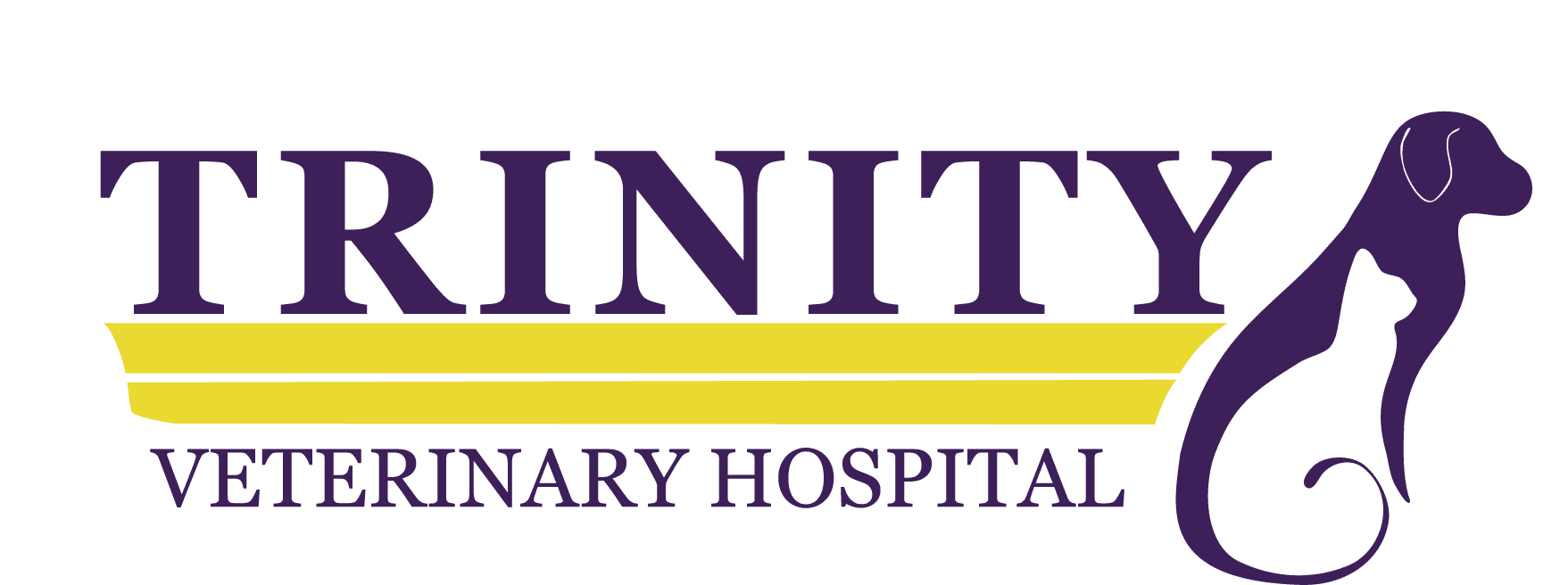Why is My Dog Drooling So Much?
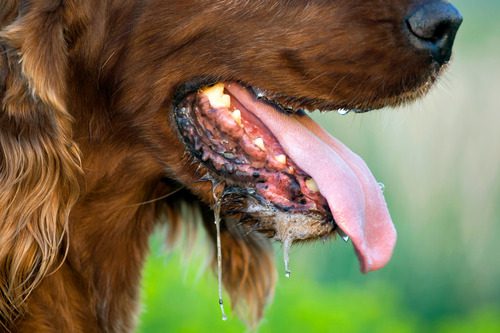
If you’ve ever asked yourself, “why is my dog drooling so much,” you’re not alone. Excessive drooling, or hypersalivation, can be alarming for pet owners because it may signal anything from simple excitement to more serious health concerns. Dogs naturally produce saliva to aid in digestion and keep their mouths healthy, but when drooling becomes frequent or excessive, it often indicates that something is affecting your dog’s oral health, nervous system, or emotional state. Understanding the reasons behind heavy drooling can help you recognize when it’s a normal behavior and when it’s time to seek veterinary care. At Trinity Veterinary Hospital in Stillwater, OK, we see many cases of increased drooling, and we emphasize that any sudden or persistent change in your dog’s behavior should be evaluated by your veterinarian.
Why is My Dog Drooling So Much All of a Sudden
Sudden onset drooling can be particularly concerning. Dogs that start drooling excessively without a clear cause may be experiencing oral discomfort, nausea, or even exposure to toxins. One of the most common reasons for sudden drooling is dental issues, such as an abscessed tooth or gum disease. Dogs with painful teeth may find it difficult to eat or chew normally, and drooling becomes a natural response to discomfort. Another factor can be nausea caused by gastrointestinal upset or motion sickness, which triggers hypersalivation as the body prepares to vomit. Environmental triggers, like ingesting something irritating or toxic, can also result in sudden drooling and require immediate veterinary attention. Behavioral triggers shouldn’t be overlooked either, as dogs can drool when anxious or stressed, especially if a new stimulus is causing fear or excitement. Because the underlying causes vary widely, it’s important to contact your veterinarian as soon as you notice a sudden increase in drooling.
Potential Causes to Watch For
- Oral health problems: broken teeth, tooth-root abscesses, oral tumors, gingivitis, or ulcers
- Nausea or digestive issues: including dietary indiscretion or illness
- Toxic exposure: ingestion of chemicals, plants, or spoiled food
- Anxiety or fear: unfamiliar environments or loud noises
If your dog’s drooling is accompanied by vomiting, lethargy, or swelling around the face and neck, call Trinity Veterinary Hospital at (405) 533-0001 immediately to schedule an evaluation.
Why is My Dog Drooling So Much in the Car
Car rides are a frequent trigger for excessive drooling, and many pet owners notice their dogs becoming wet-mouthed as soon as the vehicle starts moving. This behavior is usually linked to motion sickness, which affects dogs in the same way it affects people. Nausea and the unfamiliar movement of a car can activate salivary glands, leading to noticeable drooling. Some dogs also drool in anticipation of a destination, whether it’s the vet, park, or another exciting outing. The intensity of drooling can vary by breed; for instance, dogs with heavy jowls, such as Great Danes and Saint Bernards, tend to drool more. Understanding your dog’s individual response to car rides can help differentiate between normal excitement and signs of motion sickness that may require veterinary guidance.
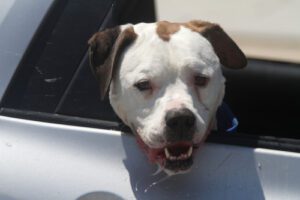
Signs of Motion-Related Drooling
- Excessive salivation while the car is in motion
- Panting, whining, or pacing
- Lip licking or restlessness
- Occasional vomiting or upset stomach
Persistent or severe drooling during car rides should be evaluated by your veterinarian. At Trinity Veterinary Hospital, we can discuss strategies to manage travel-related drooling safely and monitor for any underlying health concerns that may contribute to the behavior.
Why is My Dog Drooling So Much Around Other Dogs
Seeing your dog drool excessively around other dogs is often a reaction tied to excitement, anticipation, or social anxiety. Dogs may salivate more when they are highly stimulated, whether from play, curiosity, or nervousness. While this type of drooling is typically behavioral, it can also mask other issues such as stress-induced nausea or oral discomfort, which may become more noticeable in social settings. Understanding your dog’s body language and context can provide clues about why the drooling occurs. For example, a dog who is eager to greet a new friend at the dog park may drool in anticipation, whereas a more timid dog may drool as a physiological response to fear or anxiety.
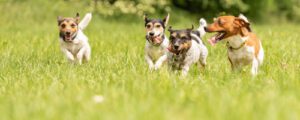
Behavioral and Social Factors
- Excitement: Greeting familiar or new dogs triggers salivation
- Anxiety or stress: Unfamiliar social situations can increase drooling
- Aggression or fear signals: Some dogs may drool as part of a submissive or defensive posture
Excessive drooling in social situations may require observation and evaluation to rule out underlying health concerns. If you notice sudden changes in your dog’s drooling pattern around other dogs, it’s best to schedule an appointment with a veterinarian. Our Stillwater veterinarian can help assess whether the drooling is behavioral or linked to a medical issue.
Other Common Reasons Dogs Drool Excessively
Beyond sudden onset, car rides, and social interactions, several other conditions can lead to excessive drooling. Oral issues remain the most frequent culprit and include periodontal disease, oral infections, or foreign objects stuck in the mouth. Gastrointestinal problems such as nausea, upset stomach, or liver and kidney disease may also cause hypersalivation. Certain breeds, particularly those with loose lips and jowls like Bernese mountain dogs, Newfoundlands, or mastiffs, naturally drool more due to their anatomy. Heat or stress can exacerbate drooling in dogs, as salivation increases when the body tries to regulate temperature or respond to stress. Even medications or recent vaccinations may temporarily trigger increased salivation.
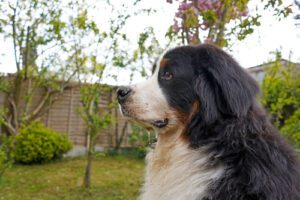
When to Call the Vet
- Sudden, severe drooling that is persistent
- Drooling accompanied by vomiting, lethargy, or swelling
- Signs of oral pain, bad breath, or difficulty eating
- Behavioral changes combined with drooling
For a professional evaluation of why your dog is drooling, call Trinity Veterinary Hospital at (405) 533-0001. Our veterinarians provide comprehensive assessments to ensure your dog’s drooling is addressed safely and appropriately.
When Drooling Signals Something More
Excessive drooling in dogs can be triggered by a wide range of factors, from simple excitement or stress to underlying medical conditions. Asking, “why is my dog drooling so much” is the first step toward understanding your pet’s health and well-being. Observing when, where, and how much your dog drools can provide important clues, but only a veterinarian can accurately determine the cause. At Trinity Veterinary Hospital, we prioritize compassionate, thorough care and are ready to evaluate any concerns about your dog’s drooling. Don’t wait, and instead call us today at (405) 533-0001 to schedule an appointment or speak with a veterinarian for more information. With proper guidance, you can ensure your furry friend stays healthy, comfortable, and happy.
Recent Posts
About Us
For over a decade, Trinity Veterinary Hospital has provided compassionate, faith-based care to pets in our college town and beyond. We treat every pet like family, offering routine checkups, boarding, and advanced care from a board-certified internist.
